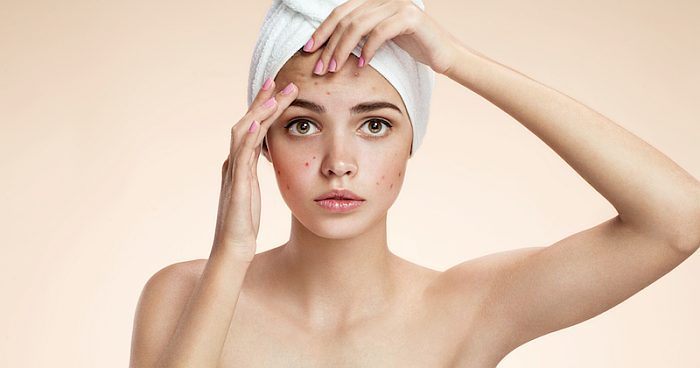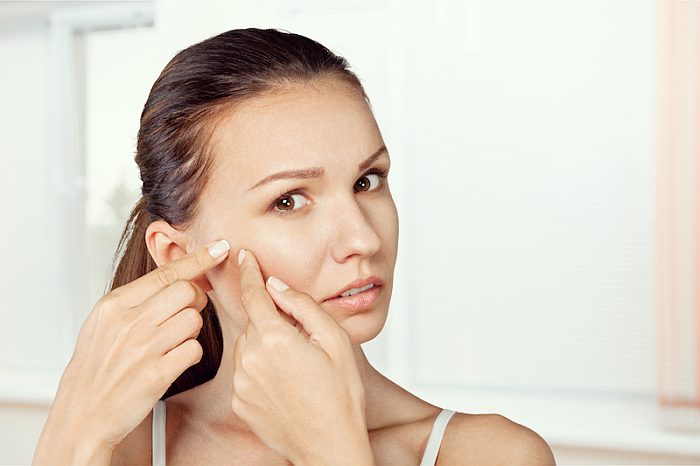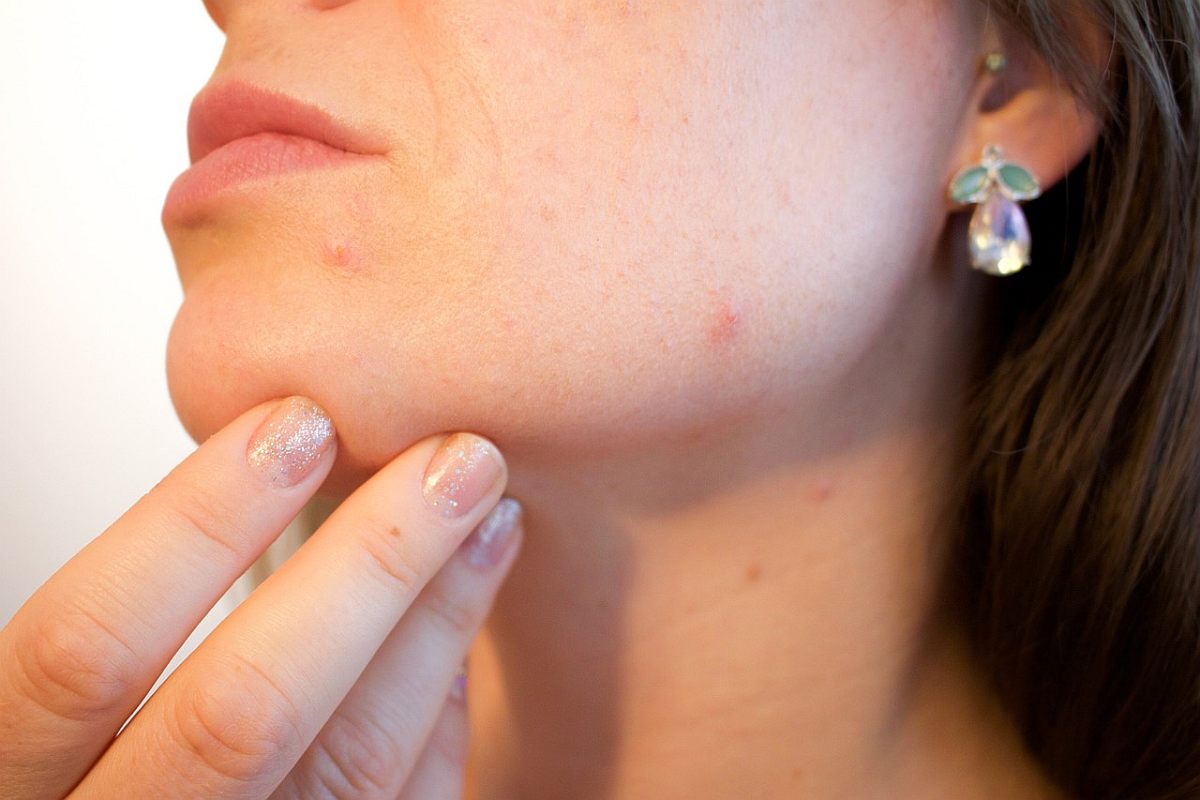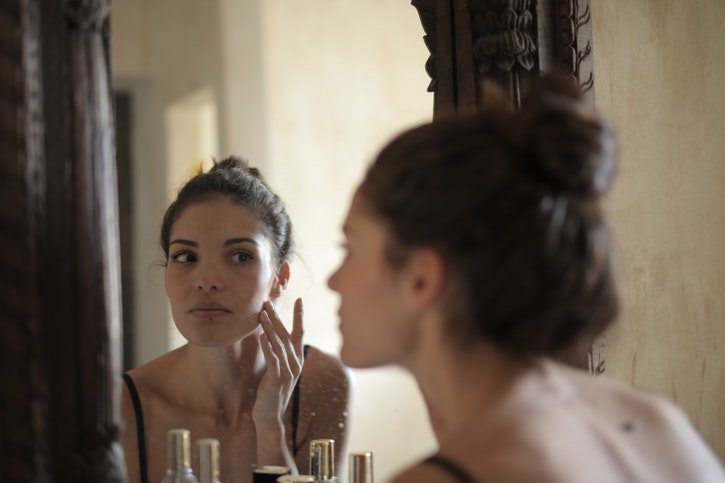When people think about hormonal acne, they often think of how puberty causes teenagers to deal with a face full of pimples. But hormonal acne isn’t limited to those going through puberty.

Hormonal acne is a term used to describe acne that is, in part or whole, caused by fluctuations in our hormones. While this term is not always used by doctors, it is useful to help understand and diagnose a particular type of acne that can affect your skin.
Dealing with hormonal acne is embarrassing and painful. To understand what is affecting your skin, you need to start by understanding the basics of hormonal acne.
Can Hormones Influence Acne?
Hormones are one of the primary causes of acne. If you are affected by hormonal acne, the following issues might be causing your breakouts:
- Excess sebum production
- Oily skin
- Skin cells accumulating in hair follicles
- Increased number of acne-causing bacteria
- Skin inflammation
Do you think that hormonal acne could be behind your skin’s flaws?
When various hormone levels in your body fluctuate, these changes can happen, and your skin will become more acne-prone than it was before.
Why Do Hormone Levels Fluctuate?
Hormone levels are constantly changing in our bodies, so it can be difficult to know if they are causing our frustrating breakouts.
There are a few specific times, however, when hormone levels are known to change for biological reasons:
- During puberty, testosterone levels increase
- During pregnancy
- During the menstrual cycle
- During treatment for illnesses (i.e. medicine can cause changes)
- During certain illnesses
Each of these periods can cause the hormones in your body to change. These changes may be temporary, or they can become a long-term problem that will cause issues like aggravated acne.
Hormone fluctuations can also occur when you are stressed, when your blood sugar fluctuates too much, when you exercise, or even when your foods have hormones in them (such as dairy and meat products). If you find yourself dealing with more acne during any of these situations, there is a high chance the acne is hormonal.
How Do Hormones Actually Cause Acne?
The effects of hormonal acne have ultimately been caused by your body’s sensitivity to androgens.
Androgens are male hormones that both male and females have in their bodies. Changes in the amount of androgens in our body can lead to acne when the oil glands are overstimulated or hair follicle conditions are changed.
One androgen that you have probably heard about before is testosterone. Both men and women have testosterone in their bodies, but women’s bodies have a harder time dealing with excess testosterone.
When there is too much testosterone in your body, the following reaction sequence occurs:
- Excess testosterone cannot stay in circulation
- Receptor cells in the skin take in the testosterone to get rid of it
- Cystic breakouts occur to release the excess testosterone
Excess testosterone in the bloodstream also increases sebum production. This is another common cause of acne in the skin that can be caused by your hormones without you even realizing it!
Having fluctuations in testosterone levels is normal.
However, if you are a female and your acne is accompanied by the growth of excess body hair, a deepening voice, or an irregular menstrual cycle, you should have your hormone levels checked to ensure a more serious issue isn’t causing these changes in your body.

How Do I Know If My Acne Is Hormonal?
It can be difficult to know if hormones are part of the problem causing your acne, and that’s part of why it is so frustrating to treat!
To figure out if your acne might be hormonal, answer these questions:
- Do your breakouts usually happen in the same place?
- Do you have breakouts in the same spot consistently?
- Are your breakouts on your jaw, chin, or hairline?
- Do you often get cystic or deep, painful pimples?
If you answered yes to two or more of these questions, there is a strong chance that hormones are part of the problem causing your acne.
The usual signs that acne is hormonal include:
- Acne happens in the same spot on a regular basis
- Acne occurs on the jaw, chin, or hairline
- Acne affected by monthly cycles
- Have other hormonal symptoms
If you are dealing with serious hormonal issues, you should always check with your doctor to have your hormone levels tested, as they could be a sign of a more serious illness or disease.
What Is The Difference Between Hormonal And Cystic Acne?
The confusing answer is that there is no distinct difference between cystic and hormonal acne. While that isn’t very helpful to diagnose your own acne, it’s important to know that many types of acne overlap.
Cysts are big, hard, fluid-filled acne bumps that can break out all over your face. This type of acne is known to be one of the most painful types, and it often leaves behind embarrassing or deep scars.
Acne caused by hormones is not always cystic. There are a few types of acne that hormones commonly cause:
- Cystic
- Small papules
- Clogged pores
- Whiteheads
- Uneven skin tone
So, cystic acne can be caused by hormones, but the two are not mutually exclusive. If cysts are part of what is causing you acne problems, you may want to consider trying treatments for hormonal acne to help reduce the severity of your cystic acne or eliminate it altogether.
Hormones Can Cause Your Acne
Are your hormones causing you to deal with painful cysts and constant pimples? Hormones in our bodies fluctuate for many reasons, and diagnosing it can be difficult.
Many processes in our bodies are regulated by hormones, and this means that when our hormone levels change, it is possible that our body can have negative reactions.
Once you know that hormones are causing your acne, you can more effectively treat your problems. While hormonal acne is difficult to treat, it’s not impossible, so don’t give up!
Relief can be yours. Don’t live in fear of hormonal acne any longer: take control of your face once again!
Georgina Schwarz is a freelance writer on Beauty and Natural Skin Care, having worked with www.beskinhost.com for the last year to share her understanding of natural beauty tips.



I have a little problem with acne, I hope I can get solution from this article. Thanks